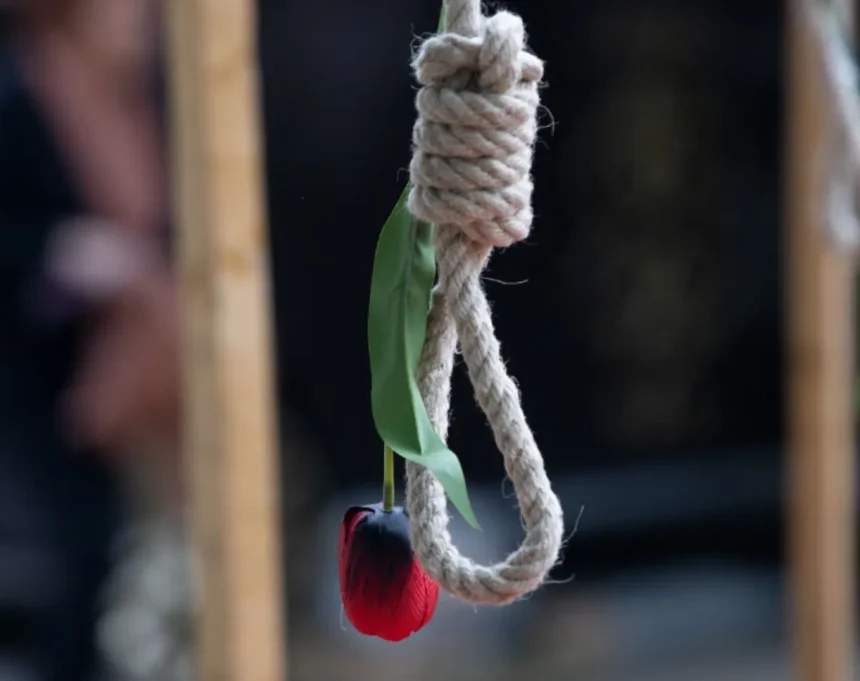Goli Kouhkan, a 25-year-old woman on death row in Iran, faces execution for killing her abusive husband unless she raises £80,000 in blood money by December, according to human rights activists.
Kouhkan, imprisoned in Gorgan central prison since 2018, was just 18 when she was arrested and sentenced to qisas (retribution-in-kind) for her husband’s death.
Her case has drawn attention to Iran’s treatment of women and minorities, where child marriage remains legal and protection against domestic violence is minimal.
Human rights groups say Kouhkan, who was forced into marriage at 12, endured years of abuse before the fatal incident that led to her arrest.
Mahmood Amiry-Moghaddam from Iran Human Rights (IHR), based in Norway, condemned Iran’s use of the death penalty, saying the country continues to increase executions.
“Kouhkan belongs to an ethnic minority, she’s a woman and she is poor. She is probably the absolute weakest in Iranian society,” he said. “Her sentence is symbolic of Iranian authorities’ use of the death penalty to create fear, and the discriminatory laws and societal factors that have led to this situation.”
Kouhkan, a member of the Baluch minority, has no official identification documents. She married her cousin at 12, became pregnant at 13, and gave birth to a son.
According to IHR, she suffered years of physical and emotional abuse. When she once fled to her parents’ home, her father told her: “I gave my daughter away in a white dress, the only way you can return [is wrapped in a shroud].”
On the day of her husband’s death, Kouhkan reportedly found him beating their five-year-old son and called a cousin for help. A fight broke out, ending in her husband’s death. She called an ambulance and reported the incident, but both she and her cousin were arrested.
READ ALSO:
- NDLEA arrests musician, uncovers Lagos illicit drug laboratory
- Protest rocks PDP national secretariat as Wike-led faction takes over
- Wike faults opposition over US ‘country of particular concern’ label
During interrogation, Kouhkan, who is illiterate and had no lawyer, signed a confession under pressure. A court-appointed lawyer later represented her.
Although the judges sentenced her to death by hanging, Iranian law allows a victim’s family to pardon a convicted person in exchange for blood money compensation. Prison officials negotiated with the victim’s family, who agreed to spare Kouhkan’s life if she pays 10bn tomans and leaves Gorgan. She will not be allowed contact with her son, now 11, who is being raised by his grandparents.
Ziba Baktyari, a member of Bramsh, a women’s rights group from Balochistan, said Kouhkan’s case is part of a wider pattern.
“Kouhkan is not one single case,” she said. “Baluch women, and women generally, are targeted by the regime. No one knows about them, no one cares about them and their voices are not heard. Women don’t have rights, they have to obey their husbands and are kept away from school. Families marry off girls because of poverty; they cannot provide for them.”
Iran executes more women than any other country, according to available data. In 2024, at least 31 women were executed for drug, murder, or security-related offences, the highest number in more than 15 years. At least 30 women have been executed so far in 2025.
Last year, at least 419 people, including a juvenile offender and 19 women, were executed for murder, the highest number since 2010, according to IHR. Only 12% of executions were officially announced, while in 649 cases, families chose forgiveness instead of execution.
Kouhkan’s case follows similar ones, including that of Samira Sabzian Fard, sentenced to death in 2023 for killing the man she was forced to marry at 15; Fatemeh Salbehi, executed in 2015 for the murder of her older husband at 17; and Zeinab Sekaanvand, executed in 2016 after being convicted of killing her husband, who she said had abused her.
All three women were minors at the time of their alleged offences and were interrogated without proper legal representation.
The Guardian UK


